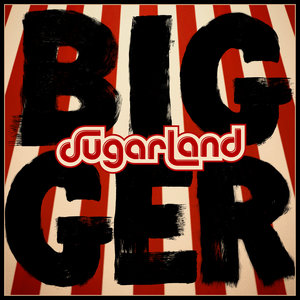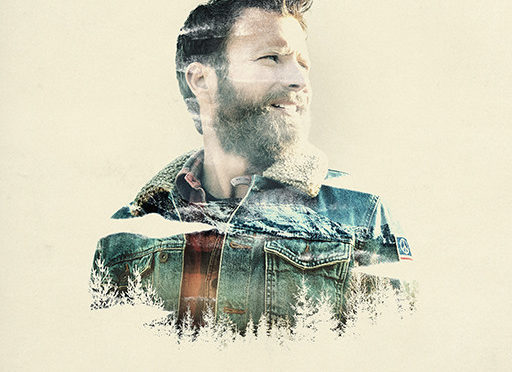Rating: 6.5/10
With midyear lists in the works and the amount of new releases slowing down some after a ridiculously crowded last several months, it is time to clear a few albums from the 2018 back burner. This Erik Dylan record is one that I’ve been trying to wrap my head around for over a month now, and I’ve had about a thousand different opinions as I kept listening to it. But unlike so many albums and songs these days that fade into the background after a listen or two, this record held my attention, and I kept seeking words for it despite my conflicting thoughts.
This is an album that has much to say and can be a lot to take. If you thought BJ Barham got too political on Things Change, you probably aren’t going to be into this record, at least not all at once. We’ll hear about immigration, racial tension, America’s justice system, the plight of American farmers…the list goes on. It’s not that any of these songs are bad–in fact, we’ll get to just how good some of them are–but as an album, it can be a bit overwhelming. Dylan should be commended for addressing these issues, though, and singing about what he believes is right.
Often, however, the album’s best moments come when there’s a break from the political nature. “Someday” and “Ain’t my Town” make a great moment together and showcase the unique importance of track placement, as the first features a narrator who’s fed up with his one-horse town and wants nothing more than to get out, and the second sees the narrator lamenting the stereotypes of small-town America all over the radio dial and embracing his home. It’s a cool contrast and yet a perfect way to explain many people’s feelings about their hometowns–they’d love to leave and chase bigger dreams, but at the same time, it’s home, and to hear anyone else criticize it is blasphemy. It’s great to hear this duality expressed so well in these two songs. “Touchdown Town” also adds to this story later on the record, as its main character can’t fit into the football-focused town and has to get out and pursue his dreams of a career in music. “13th Floor” is another strong non-political moment on the album and speaks of the hurts and failures and demons we all carry with us and keep hidden in our minds, on the “13th floor,” a superstitious and haunted place where all those bad memories dwell.
As for the political and social commentary, as always, it is best when telling a story or discussing specific characters. For example, “Funerals & Football Games” works so well with its story of factory workers being laid off after years of employment because it speaks to the mentality of this character that grown men can’t cry–unless, of course, if someone’s dying or his son’s scoring a touchdown. “Flatland Sunrise” stands out as a highlight, as the narrator stares up at the cruel summer sky and prays for God to help him keep his family’s land. “Honest Work” details an immigrant coming to America alone and just trying to find work and raise enough money to send back to her family; it’s not preachy, but rather more of a story, and when you get to the part about how your grandpa or some other ancestor came here in the same way and was welcomed with open arms, you can’t help but feel the plight of these people in a new light.
It’s songs like “Color Blind,” where the message is too transparent, that really don’t add much to the record. “Color Blind” is a more transparent, less thoughtful “White Man’s World,” even down to the reference to his child; “The world is on fire” did this also, in fact, although it was more about the election in general than one specific issue–and it just doesn’t add much value. It’s certainly the right stance to take, wanting to rid the world of ridiculous and unfair biases based on race, but it’s just not executed well at all.
The other problem with these types of songs is that while many are great on their own, it can be draining to listen to them all at once. To reference “White Man’s world” again, that song was so effective partly because it was a rare political moment on an otherwise apolitical album. The best political and social commentary doesn’t alienate half its audience, but rather seeks to bring people together and foster dialogue and understanding between all sides. It’s why “Black Jesus” is such a brilliant song, for it shows that less is more and calmly makes its point without calling people out. Baseball on the Moon is not really a divisive record, but with all these songs all together, it’s a bit of an unapproachable one for some listeners. That’s a shame because the majority of these tracks are pretty great on their own. Listen to “Honest work,” and it’s a great, thoughtful tune; listen to it as the thirteenth track of a heavy, politically charged album, and it loses some of its value as a song that speaks to people.
This is why it’s been so hard to write about this album, and why even now, assigning a rating is really tough. Taken individually, many of these songs are quite good, and if you like this type of material, you’ll definitely enjoy this album more than I do. But if you don’t like politics, it’s probably not the album for you, and you’d be better off checking out specific songs. It’s a record where the songs themselves are worth more than the sum of their parts. and yet, it’s precisely because of those songs that Baseball on the Moon needed discussing. You’ll know who you are if you’re going to like this record, and for the right audience, there’s much to enjoy here.



